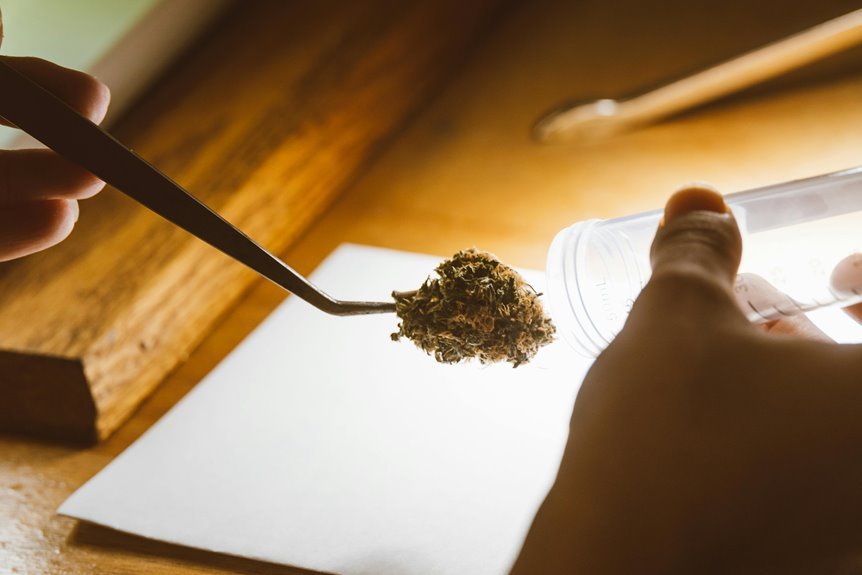Does Cbd Show up on a Drug Test?

The question of whether CBD shows up on a drug test is complex. While CBD itself is not the primary focus of standard tests, the presence of THC in some products can complicate matters. Factors such as product type, dosage, and individual metabolism play significant roles in detection. Understanding these nuances is crucial for users who may be concerned about potential positive results. Exploring the distinctions between CBD and THC can provide further clarity on this topic.
Understanding CBD and THC: Key Differences
While both CBD (cannabidiol) and THC (tetrahydrocannabinol) are cannabinoids derived from the cannabis plant, their effects and legal statuses differ significantly.
CBD benefits include potential relief from anxiety, inflammation, and pain without psychoactive effects.
In contrast, THC effects can lead to euphoria, altered perception, and potential impairments, making it subject to stricter regulations in many regions, often classified as illegal or controlled substances.
How Drug Tests Work
Drug tests are analytical procedures used to detect the presence of specific substances in a person's system, often employed by employers, law enforcement, or medical professionals.
Various drug test types, such as urine, blood, and saliva tests, utilize different testing methods to identify substances.
Each method has its own detection window and sensitivity levels, influencing the results and their implications for individuals.
Factors That Influence Drug Test Results
Several factors can significantly influence drug test results, affecting both the accuracy and interpretation of the findings.
CBD dosage plays a crucial role, as higher amounts may lead to detectable levels in certain drug test types.
Additionally, individual metabolism, frequency of use, and the sensitivity of the test can also impact results, making it essential for users to understand these variables.
Choosing the Right CBD Product for Safety
When selecting a CBD product, consumers must prioritize safety to mitigate any potential risks associated with use.
Full spectrum options may offer enhanced therapeutic benefits but can contain trace THC, potentially affecting drug test results.
In contrast, isolate benefits provide a THC-free alternative, ensuring a lower risk of detection.
Careful consideration of these factors can help consumers make informed choices aligned with their personal needs.
Conclusion
In conclusion, while CBD itself is unlikely to show up on a drug test, the presence of THC in full-spectrum products can lead to positive results. A study found that approximately 20% of CBD users had detectable THC levels in their system, highlighting the importance of product selection. For those concerned about drug testing, opting for THC-free CBD isolate products is advisable. Awareness of the differences between CBD and THC, along with understanding drug testing mechanisms, is crucial for informed choices.





